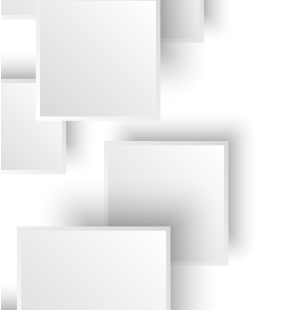-
5900 South Lake Forest Drive Suite 300, McKinney, TX 75070

- glodachpsychiatry
- Obsessive-Compulsive Disorder (OCD)
Obsessive-Compulsive Disorder (OCD)
- PMS
- Phobias
- Mood Disorders
- Anxiety Disorders
- Weight loss
- Anger Management
- Eating Disorders
- Schizophrenia
- Schizoaffective Disorder
- Personality Disorders
- Autistic Spectrum Disorders
- Impulse Control Disorder
- Pediatric Psychiatric Disorders
- Childhood Psychiatric Issues
- Obsessive-Compulsive Disorder (OCD)

Obsessive-Compulsive Disorder (OCD) at Glodach Psychiatry & Integrative Health
Obsessive-Compulsive Disorder (OCD) is a mental health condition characterized by persistent, intrusive thoughts (obsessions) and repetitive behaviors or mental acts (compulsions) performed to alleviate the distress caused by these thoughts. At Glodach Psychiatry & Integrative Health, we offer comprehensive treatment strategies to help individuals manage OCD and improve their quality of life.
Types of OCD:
Contamination OCD: Involves intense fear of germs, dirt, or contamination, leading to excessive washing, cleaning, or avoidance of perceived contaminants.
Harm OCD: Centers around fears of causing harm to oneself or others, leading to compulsions to prevent harm, such as checking or avoiding certain activities.
Symmetry and Ordering OCD: Characterized by a need for symmetry, order, or exactness, often resulting in repetitive arranging or counting behaviors.
Checking OCD: Involves persistent doubts about whether tasks have been completed correctly (e.g., locking doors, turning off appliances), leading to frequent checking and re-checking.
Intrusive Thoughts OCD: Features distressing, unwanted thoughts or images, often of a violent or inappropriate nature, with compulsions to neutralize or counteract these thoughts.
Symptoms of Obsessive-Compulsive Disorder (OCD)
Common symptoms of Obsessive-Compulsive disorders include:
- Obsessions: Persistent, intrusive thoughts or images that cause significant anxiety or distress.
Compulsions: Repetitive behaviors or mental acts performed to reduce the anxiety caused by obsessions or to prevent a feared event.
Time-Consuming: Obsessions and compulsions take up significant amounts of time and interfere with daily functioning.
Distress and Impairment: Significant distress or impairment in social, occupational, or other important areas of functioning due to OCD symptoms.
Treatment for Mood Disorders
- Psychotherapy: Cognitive Behavioral Therapy (CBT), particularly Exposure and Response Prevention (ERP), to help individuals confront and manage their obsessions and compulsions.
- Medication Management: Use of selective serotonin reuptake inhibitors (SSRIs) or other medications to help alleviate OCD symptoms.
- Behavioral Interventions: Techniques to break the cycle of obsessions and compulsions and develop healthier coping strategies.
- Support and Education: Providing guidance and education about OCD to individuals and their families to better understand and manage the condition.
- Holistic Approaches: Incorporating stress management, mindfulness, and lifestyle changes to support overall mental health and well-being.
Why Choose Glodach
-
Specialized Expertise: Our extensive experience in treating OCD ensures that patients receive expert, focused care.
-
Personalized Care: Tailored treatment plans address the unique aspects of each patient’s OCD, promoting better outcomes.
-
Supportive Environment: A compassionate and patient-centered approach provides a safe space for individuals to confront and manage their OCD.
-
Targeted Treatment
We utilizes Cognitive Behavioral Therapy (CBT) and Exposure and Response Prevention (ERP) to directly address and reduce OCD symptoms.
-
Individualized Plans
Each treatment plan is customized to the specific needs and challenges of the patient, ensuring effective and focused care.
-
Holistic Approach
Combining therapy with mindfulness and stress-reduction techniques to support overall mental well-being.
-
Long-Term Management
Strategies are developed to help patients maintain progress and prevent relapse, fostering lasting improvement.
Contact
5900 South Lake Forest Drive Suite 300, McKinney, TX 75070
Get Daily Insurance News
© All Copyright 2024 by Glodach Psychiatry

